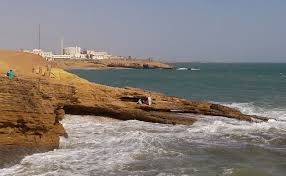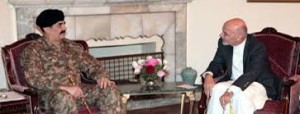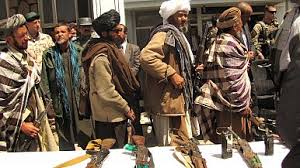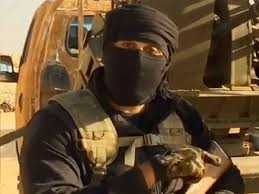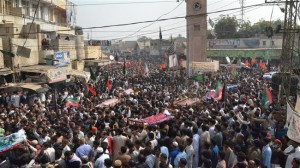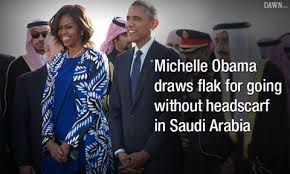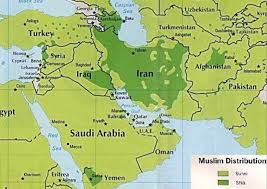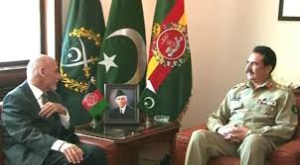
KABUL, March 21: Afghanistan faces a difficult spring in terms of security as the so-called “fighting season” with the Taliban begins, Afghan President Ashraf Ghani said on Saturday, adding that Pakistan was “pushing a major series of global terrorist networks onto” war ravaged country.
“The winter has been extraordinarily difficult. And barring major breakthroughs in the region, spring will be difficult,” he told a press briefing at the presidential palace, several hours before leaving on a four-day official visit to the United States.
Ghani, who came to power in September, said he had not asked for any specific aid from the United States nor any changes to planned troop withdrawals.
“What I’ll be explaining to the Congress of the United States is what we’re doing. What we’re underlining is both the nature of the threat and what we’re doing with the existing resources and capabilities,” he said.
Ghani will be travelling to the US along with Chief Executive Officer Dr Abdullah Abdullah. They are due to meet with President Barack Obama at the White House on March 24.
“A partnership is about appreciation of conditions…. You cannot just simply request assistance,” the president added.
The United States was due to reduce its 10,000 troops to 5,500 by December, but that number is expected to be reassessed.
Pakistan ‘pushing’ terrorists onto Afghanistan
According to Ghani, Pakistan’s military operations in Waziristan and Khyber “are pushing a major series of global terrorist networks onto us”.
But he stressed he considers neighbouring Pakistan a key partner in the peace process, saying success depends on “an enduring peace” with Islamabad.
Creating conditions for talks with the Taliban
The Afghan government has been “actively engaging” with its neighbours in the region over the past few weeks “from Azerbaijan to India” to create conditions for discussions with the Taliban, Ghani said.
“We have not had face-to-face discussions, we’re preparing the conditions for those,” he added.
Diplomatic efforts to bring the Taliban to the negotiating table have gained pace recently, even as security forces have launched offensives against the insurgent group without NATO assistance for the first time since 2002.
For their part, the Taliban have yet to officially acknowledge that talks are being held. They continue to impose their own tough conditions, including the absence of any foreign troops on Afghan soil, as a precondition to negotiations.
IS ‘swallows its competitors’
Ghani and his Chief Executive Abdullah Abdullah will also have an opportunity to discuss the emergence of the Islamic State group (IS) on their US visit.
Ghani said IS “swallows its competitors”.
“If you compare al Qaeda and Daesh, it’s like going from Windows 1 to Windows 5,” he said, referring to IS by an alternative name.
“These groups do not fit with the classic insurgency.”
The Middle East-based group has not formally confirmed it is operating out of Afghanistan, though Pakistani and Afghan commanders have pledged their allegiance to the outfit in recent months.
In the United States, Ghani said he expects to field questions about the country’s finances.
“The question we will be asked is about fiscal sustainability. Will we be able to afford our own forces?” the president said.
“This is precisely why we’re examining the system of expenditure — the efficiency, the effectiveness, the transparency from top to bottom.”
The trip is also seen as an important step toward mending relations between the United States and Afghanistan, which deteriorated towards the end of former president Hamid Karzai’s ten-year rule.


